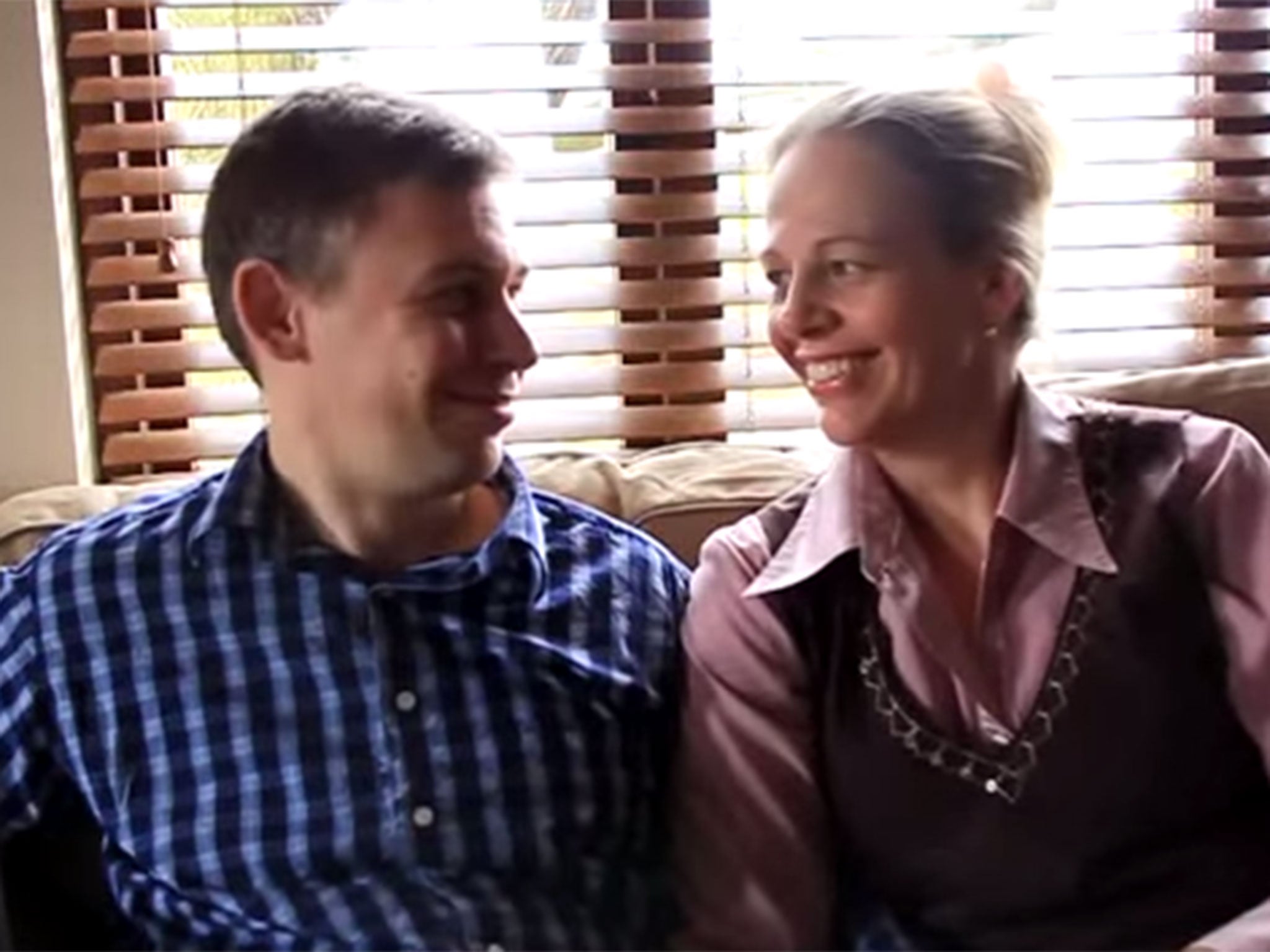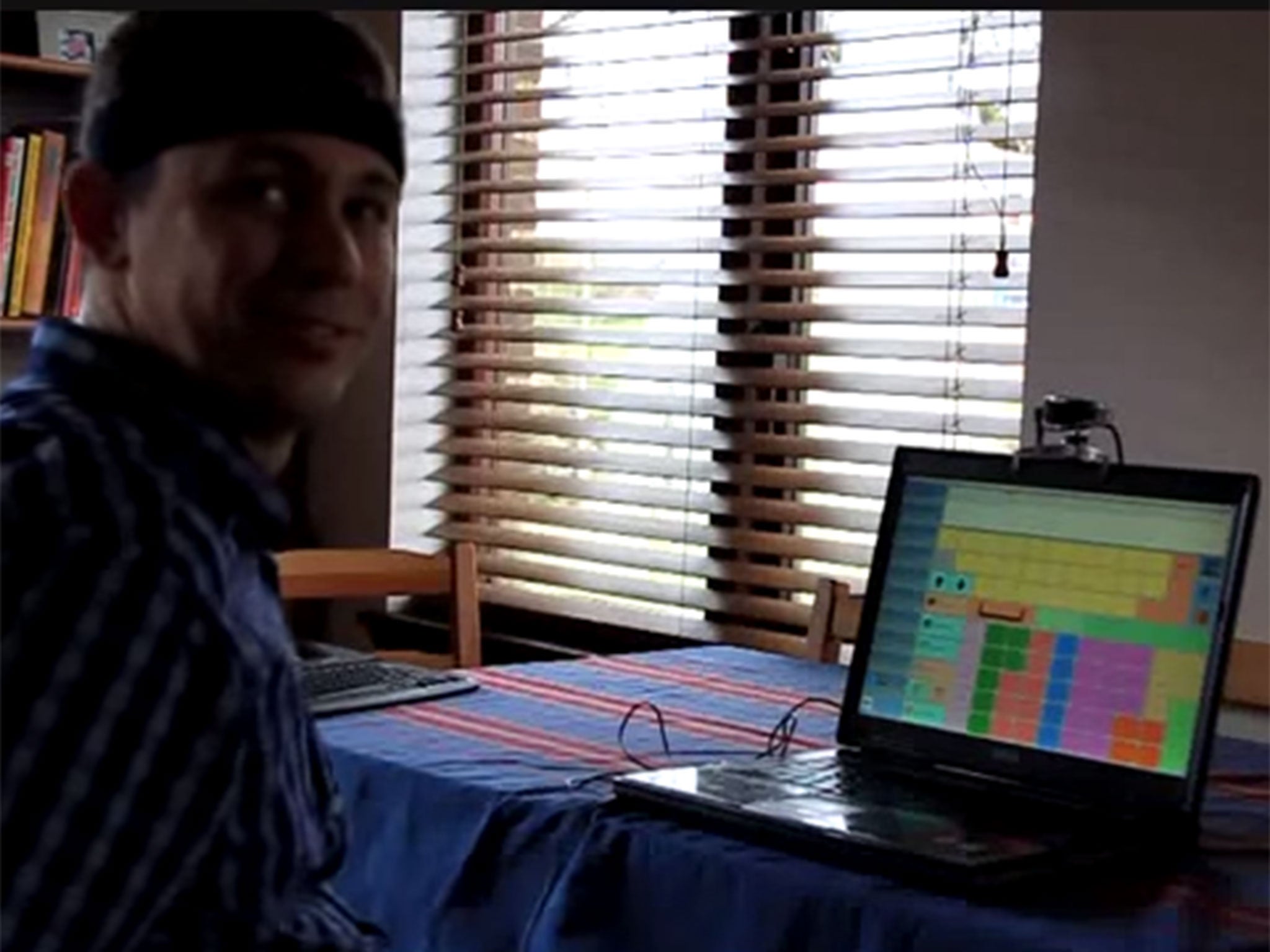'Ghost Boy' Martin Pistorius who suffered mysterious virtual coma for 12 years describes hearing his mother tell him: 'I hope you die'
Family opens up over extraordinary locked-in syndrome story

Your support helps us to tell the story
From reproductive rights to climate change to Big Tech, The Independent is on the ground when the story is developing. Whether it's investigating the financials of Elon Musk's pro-Trump PAC or producing our latest documentary, 'The A Word', which shines a light on the American women fighting for reproductive rights, we know how important it is to parse out the facts from the messaging.
At such a critical moment in US history, we need reporters on the ground. Your donation allows us to keep sending journalists to speak to both sides of the story.
The Independent is trusted by Americans across the entire political spectrum. And unlike many other quality news outlets, we choose not to lock Americans out of our reporting and analysis with paywalls. We believe quality journalism should be available to everyone, paid for by those who can afford it.
Your support makes all the difference.“The rest of the world felt so far away when she said those words.”
That’s how the Ghost Boy author Martin Pistorius has described his mother telling him, to his face, that she "hopes he dies" – unaware that he could understand every word.
Pistorius was just an ordinary boy with an interest in playing with gadgets when, at the age of 12, he suddenly started to shut down.
Defying doctors and any attempt at diagnosis, he was sent home from school with flu symptoms and never returned. He stopped eating, his muscles weakened and eventually he stopped moving, and even thinking, altogether.
In his book, Pistorius details how his parents were told he was “a vegetable”, that he had lost all intelligence, and that they should simply wait for him to die.
Yet when he was 16, Pistorius awoke – and spent the next eight years as a conscious brain trapped inside a paralysed body.
The South African family’s extraordinary story is the subject of a new NPR documentary podcast for the channel’s Invisibilia programme.
Speaking to NPR, Pistorius said he was inspired by a bizarre motive to fight and get himself understood – being made to watch repeat episodes of children’s TV programme Barney.

“I cannot even express to you how much I hated Barney,” he said.
Pistorius was so fed up with being made to watch the singing dinosaur he made himself learn to tell the time – without the use of a clock – to count down until it was over.
“I would watch how the sun moved across the room or how a shadow moved throughout the day,” he said.
“Simply to make it to when I was taken out of my wheelchair and that for a brief moment, the aches and pains in my body could subside.”
Joan and Rodney Pistorius, Martin’s parents, also appeared on the NPR show. Ms Pistorius said the experience of caring for her comatose son was “so horrific” and that she once told him: “I hope you die. I know that’s a horrible thing to say. I just wanted some sort of relief.”
She told NPR: “Oh, that’s horrific when I think about it now.”
Martin Pistorius said: “The rest of the world felt so far away when she said those words. As time passed, I gradually learned to understand my mother's desperation.
“Every time she looked at me, she could see only a cruel parody of the once-healthy child she had loved so much.”
Though doctors eventually diagnosed Pistorius with cryptococcal meningitis, it remains unclear what made him “wake up” from his vegetative state when he did.
Now speaking through a voice synthesiser and moving with a wheelchair, Pistorius lives in England with his wife Joanna. In 2011, when his book was released, he wrote an account for the Daily Mail describing how he felt he was saved by his love for her.
“I’d experienced [love] as a boy and man, as a son, brother, grandson and friend, I’d seen it between others and I know it could sustain us through the darkest of times,” he wrote. “Now it was lifting me closer to the sun than I ever thought I would fly.”
To listen to the full NPR programme on Pistorius’s story, click here.
Join our commenting forum
Join thought-provoking conversations, follow other Independent readers and see their replies
Comments